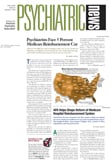Women in Finland who underwent cosmetic breast-implant surgery in the last 30 years were more than three times as likely to commit suicide as those who did not have the surgery, according to a new study published in the October Annals of Plastic Surgery.
Researchers studied the death rates among 2,166 women with cosmetic breast implants and found that 10 had committed suicide, when the expected rate was 3.13 suicides. When compared with women in the general population in Finland, those in the sample were 3.2 times more likely to commit suicide, the researchers concluded.
To evaluate these data, Joseph McLaughlin, Ph.D., who is president of the International Epidemiology Institute in Rockville, Md., studied the records of women who underwent a cosmetic breast-implant operation from 1970 through 2000 at the five public hospitals and six of the eight private hospitals in Finland.
For the breat-implant subjects who had died, he linked the records to the country’s national mortality register to determine cause of death.
Of the 2,166 women, there were 31 deaths, just slightly above the rate the researchers projected based on a statistical calculation using the cause-specific mortality rates of females in Finland.
Suicide was the third-leading cause of death among women in the sample. Disease was first, claiming 15 lives, and accidents claimed 14 lives.
That there were 10 suicides in the sample, McLaughlin told Psychiatric News, “was the most striking finding in the study.”
Prior research has also found elevated risk of suicide in women with breast implants. In Sweden, for example, researchers found that among a sample of 3,521 women who had cosmetic breast-implant surgery, there were 15 suicides, when the expected number of suicides was 5.2. The Swedish study, which appeared in the March British Medical Journal found a 2.9-fold increase in the risk of suicide for women in the sample.
So why might women with breast implants tend to have higher suicide rates? Some studies have found reports of depression, anxiety, and low self-esteem in women seeking breast augmentation, but these reports are based on unstructured interviews, McLaughlin said, and “don’t allow us to draw a causal link between suicide and breast implants.”
In a yet-to-be-published study, McLaughlin and his colleagues examined the discharge summaries from psychiatric hospitals for a cohort of women in Denmark who received breast-enhancement surgery and compared them with psychiatric discharge summaries from two control groups—one in which women received breast-reduction surgery and another in which women received cosmetic surgery other than breast augmentation.
“The Danish women with breast implants had almost double the rate of psychiatric morbidity as those in the control groups,” McLaughlin noted.
In an editorial that appeared in the November issue of Plastic and Reconstructive Surgery, McLaughlin laid out his plan to study further the link between suicide and breast-implant surgery. He said he will compare the psychiatric records of four groups of women with similar sociodemographic characteristics in Denmark: women with breast implants who have committed suicide, women with implants who have not committed suicide, women without implants who have committed suicide, and women without implants who have not committed suicide.
“This type of research will help us to further understand the role of implants, if any, in suicide and whether preimplant psychopathology contributes to an excess of suicides among those who have received cosmetic breast implant surgery,” he said.
The International Epidemiology Institute and the Finnish Cancer Registry funded the research.
An abstract of the article, “Causes of Death Among Finnish Women With Cosmetic Breast Implants, 1971-2000,” is posted on the Web at www.annalsplasticsurgery.com. ▪
